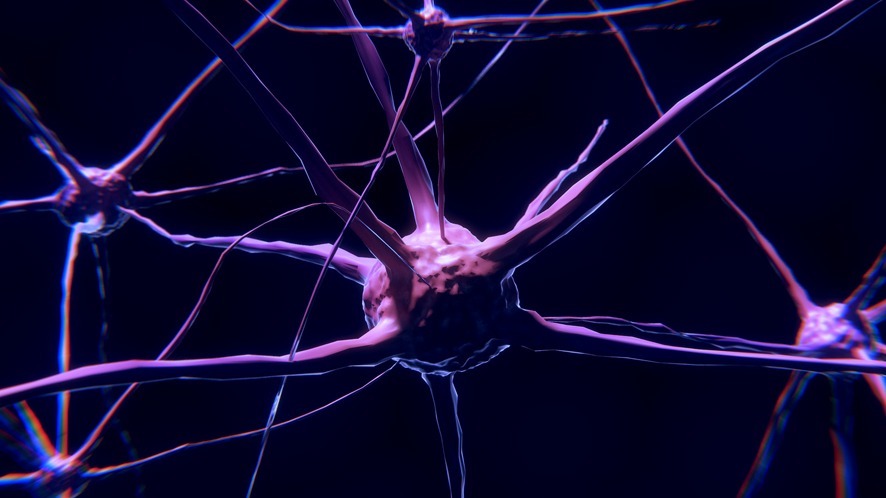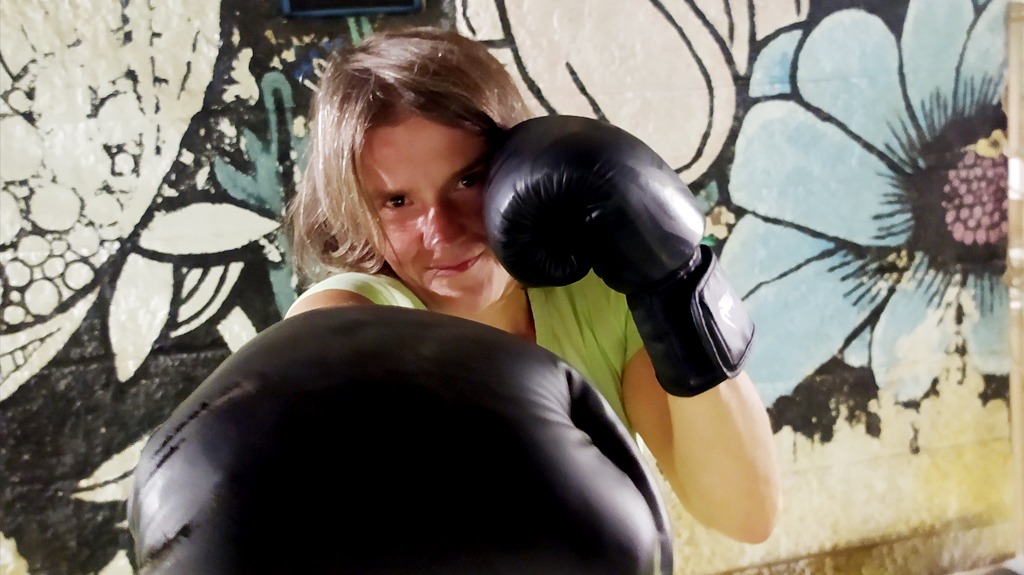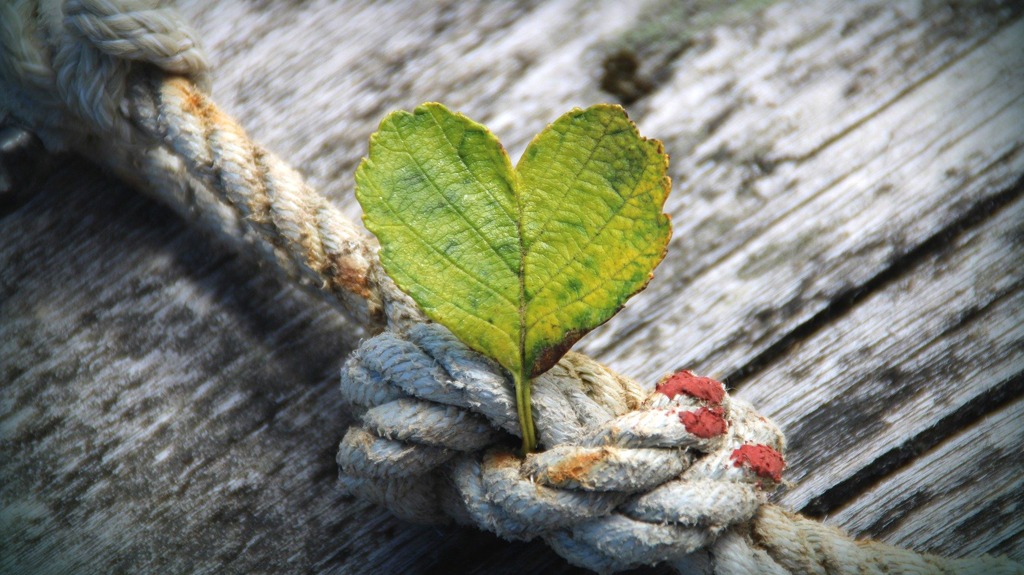Overview
Stress, Alienation & Depression | the spiral of our Time
After a long absence, a recent visit to family and friends reminded me of something important: Times have changed. Change is constant—it’s neither good nor bad. It’s up to us to shape and navigate these changes.
In this post, I want to discuss shifts in our inner lives and psyche that many may not be aware of. I’ll share my observations and invite you to look more closely. Some of what I touch on may be hard to digest, but my goal is not to blame anyone. Rather, I want to bring the unconscious into awareness.
Technologization and digitalization are unstoppable. But that doesn’t have to be a problem if we approach it consciously and healthily. Many people are already navigating the effects of this era mindfully. But many others don’t notice how they are slowly changing, getting sucked into the spiral of modern life.
I want to emphasize the importance of being mindful of the shifts happening within our inner universe. This is where we have influence. From here, we enter into relationships with others.
The whirlpool of our times is made up of efficiency, performance, speed, and a high turnover rate. Existential fears further fuel stress, depression, and alienation. Take a moment to pause and ask yourself: “Why am I here?”
Natural Rhythms | Our home
I live on an island. Life here is heavily influenced by the weather and the tides. You can’t rake the garden with 47 knots of wind, and sometimes driving is just not an option. The sea, wind, and sun set the rhythms we live by. While there are downsides to this, one thing is certain: It keeps you grounded and connects you to the rhythms we were originally in tune with—and still are. We have no power over the forces of nature. When you feel that, it brings humility and respect for nature. You start to understand that everything has its time, and many things are beyond our control.
A lot happens spontaneously—when nature and the rhythms allow it. And that brings peace. When you start aligning with nature’s rhythms, something shifts inside. That’s our nature, our home. It’s where we come from. You feel it when the wind hits your face or the sun warms you. When you swim in the sea or lie on a meadow, listening to the buzzing around you. When you climb trees or walk through lush forests: This connection is real.
The people in this island community also know: They are depending on each other. You treat each other kindly even when you don’t get along that well. Because the next storm might require the help of a neighbor. Being dependent on each other means that respect in the relationship comes first! That’s why you accept each other as you are.
Shopping happens in small local stores, where people know each other by name and are happy to see each other. A lot is very regional, and much isn’t available at all. And somehow, that’s always okay. Before you order something from the mainland or a big online store, you think twice. It takes a long time to arrive—and it costs money. Do you really need it?
Most people work with what they have. And that too brings relaxation: Living minimalism, where you often do without, and then realize that it wasn’t really necessary. It’s a real relief not to have to keep up with the consumer trends.
Alienation | The big fear & the little trust
Coming from the idyllic island, I became more aware of how time-structured the lives of many people are. Sometimes it feels like people are being “lived” more than they are actually living. This starts with children who must go to kindergarten or school in the mornings. Alongside the important education, they meet peers, engage in social learning, form friendships, and develop interests. School is important, and structure is too. However, the pressure that comes with it has grown, as most parents would not know how to handle a situation without school or kindergarten. Often both parents are working, sometimes under tremendous pressure to provide for their families.
Where school and kindergarten used to be opportunities for development, today they have become necessities for parents. This gives us insight into the high pace and stress that parents (and people in general) face today. If you want to learn about the basics of the stress response, read more here.
As we gradually lose touch with our natural rhythms, the demands of the modern workplace grow. The unrelenting demand for productivity, rising costs, increased taxes, and bleak scenarios fuel additional worries and stress. Stress, stress, stress.
Most people are overloaded in a one-sided and unnatural way. What would help is grounding, calm, and relaxation, a bit of trust and confidence. But where can we find that? Especially when the connection to our natural rhythms, that calming, relieving relationship with Mother Earth, is missing?
Cycling is done to toughen up. Jogging for endurance. Who lies under a tree today, just basking in the sun? Simply like that? With the increasing technologization and digitization, we have unfortunately lost this connection more and more.
You can also see this in children. The time children can spend playing freely is limited. I still vividly remember how we, as children in the housing development, played with other kids on the (seldom used) street until sunset. We jumped over dirt piles and “rescued” animals. It was completely normal and so important for us to have our own lives.
Today, children are almost constantly supervised due to fear that something might happen. This isn’t an invitation to be careless, but are these fears truly real? Are there other reasons why children must be under constant supervision? And what price are we willing to pay for that? The feeling of freedom and the development of autonomy in children? Could it also be that stressed-out people make decisions out of fear rather than reason?
These days, there are GPS wristwatch trackers for children, allowing them to make calls or receive them. One can understand this, and sometimes it may be necessary for safety reasons. Yet, the space for freedom, playful exploration is becoming more restricted. Full control is desired. Out of a big fear. Because trust has become so small.
Depression & aggression collapse | Individually & collective
When we’re stressed, we tend to act impulsively, without thinking, and in a reactive way. Often, this is an attempt to reduce further stress & anxiety, release pressure, or just find some peace. This can even show up as an angry (re)action. But by doing this, we end up creating injuries, interpersonal conflicts, accidents, or making poor decisions.
Stress, anger, and anxiety distort our perception of the world: We start seeing risks, dangers, threats, and enemies. We drain a huge amount of energy, leaving us with less for other areas of life.
The mood and energy of each person flows into a collective field. Likewise, this collective field influences each individual.
Research shows that stress triggers either anger or anxiety. The current trend carries the risk of pushing us, through a stress loop that has become the norm, into a depression– and aggression collapse, both individually and collectively. I’m speaking in psycho-energetic terms. Of course, it’s up to each person to draw parallels between personal and collective events.
Relationships at risk | Effects of stress, anger & alienation
So many people are constantly stressed. Our loved ones feel it the most. While we can often “hold it together” with strangers and colleagues, it’s much harder in the circle of the familiar. Usually, it’s the parents, partners, or children who bear the brunt of our stress. It’s completely understandable. Where else can you release all the stress, emotions, anger, and dissatisfaction?
The maelstrom of this time has a tremendous pull! This post isn’t an accusation, but rather a letter of understanding and a wake-up call.
In my 14 days back home, I witnessed four instances where children (in supermarkets, swimming pools, at home) were yelled at by their parents over trivial things: “Stop annoying me!”, “Don’t make a big deal out of it!”, or “Just open your eyes!”. It was so harsh in some cases that I was genuinely shocked.
Children need boundaries, that’s clear. But the energy, the way it was said (or screamed) was cutting and sharp. This wasn’t about a boundary. These were parents who felt “threatened” by their own children and needed to release pressure. The children, simply by being themselves, added another layer to the parents’ already overwhelmed stress level. These people were truly at their breaking point.
Even though it may sound strange: Your life doesn’t have to be dominated by stress, anger, anxiety, or depression. These developments are difficult to deal with, but I hope you can allow them to prompt sincere reflection, and maybe even lead to a change in direction. Take a second to bring into your consciousness that you have a free will.
A stress load comes from all the external factors we give meaning to (or feel we must) and use as our benchmarks. With all due understanding: Children are the least responsible for how much stress we allow in our lives. That’s exactly why I’m bringing attention to this. A real limit has been reached.
What happens next depends on whether you, I, we continue to embrace this stress load or not. It depends on how much we continue to alienate ourselves from our own rhythms (or allow ourselves to), or whether we choose to reverse that. If we honestly acknowledge the current situation and act accordingly, we can exit the looming depression and aggression collapse. This would benefit the children and future generations as well.
The only thing you need to do: Reflect on what is truly important to you in this life.
Values | Which ones do you live?
If you don’t shape your life with your values and rhythms, then you’ll be lived. You’ll be shaped by external expectations and values that were adopted and are no longer questioned. Stress arises especially when we feel like we’re stuck in the wrong life. We experience ourselves as victims of circumstances. Alienation either makes us sad or angry.
But – we can’t really do anything about it, can we? What are we supposed to do? We have to work to earn money. The kids have to go to school. We have to take care of our bodies, eat healthily. Right? And then we have to make things work with the kids. And we have to function as well. Everything has to work.
Do you notice something? That’s a lot of have to.
And here’s my question for you: Do you live to have to? Is that really it?
What values do you want to express?
How do you want to live?
How should your children grow up?
What do you wish for them and for yourself?
What do you want to experience?
Is there something that gives you goosebumps and brings you closer to yourself?
These are the questions you should be asking yourself. Instead of thinking about all the things that could go wrong, fail, or fall apart.
What could work?
What is normal for you? | Are you on the right track?
We are all more or less alienated. The gradual alienation began when indigenous peoples were displaced and wiped out, as humans positioned themselves above nature. Over time, values, narratives, and concepts evolved that were simply declared “normal” and adopted by the generations before us.
As humans, I believe we are now at a tipping point where the disconnection from our natural rhythms and the self-alienation can hit us like a boomerang right in the face. Not because we are stressed, alienated, and denatured, but because we no longer recognize (or refuse to recognize) our own state of exception. This state is about to become the new normal.
Today, it’s normal to live against the rhythms of nature, to try to control them (to maximize output), instead of living with and in alignment with them. It’s normal to lament the absence of something rather than acknowledge the positive and to be genuinely grateful for the gifts of life. Similarly, many react with sincere confusion when one is relaxed or looks at life with confidence.
We live in a fast-paced time. We are now at a crossroads, deciding how we want to cope with the fact that the current flow of time is speeding up.
Pause and reflect:
Do I really want stress to be “normal” for me? Do I think it’s right that my life circumstances alienate me from myself and nature? Do I want to accept living in a rhythm that leads to stress, anger, anxiety, and depression?
In doing so, we miss out on so much: The abundance surrounding us, the people who care about us, and those with whom we could feel connected. Many have forgotten that we are here to live. Not to be lived.
Life doesn’t have to be a sequence of compulsions.
When was the last time you looked out of the window and asked yourself: “What do I really feel like today? What am I longing for?”
A long time ago? Then do it now!
Leaving the spiral | 6 steps
There is a way out of this spiral of time. We can free ourselves from this stuck situation. To do so, we must find stillness, reconnect with our own values and rhythms. These six steps can help you confront stress, depression, and alienation. It’s time to change tracks.
1. Mindfulness & Deceleration
Consciously take time for yourself & others. Before giving your time to others, give yourself regular moments of stillness and relaxation. Whether through meditation, walks in nature, or simply mindful breathing.
2. Mindfulness with thoughts
Consciously observe how you think. Check when fears or doubts take over your thoughts & consciously choose to think about it differently. Step back and realize that you´re the creator of your thoughts. You can give them direction and focus.
3. Values, reflection & Self-discovery
Take time to reflect on your values, goals, and needs. What is truly important to you in life? What do you want to express more in your life (joy, ease, adventure, etc.)? What goals do you want to achieve intrinsically (from within)? Find your own answers to these questions and start living more by them.
4. Communication, Connection & fostering relationships
Take real time & space for your relationships with loved ones. Express your feelings and needs openly, and listen attentively in return, being fully present in the moment. Consciously choose to spend your time with people who uplift you and who you experience as supportive. It is your life’s time! Also choose consciously when you prefer to spend time alone with yourself.
5. set boundaries & priorities
Respect your own boundaries and allow yourself to express them. Saying “no” to a request, an offer, or an invitation can be a “yes” to yourself. This way, you set clear priorities in your life and focus your energy on yourself and what truly matters to you. This also applies to the media consumption (What am I allowing myself to take in?). Respect the boundaries of others – give freedom when you want it for yourself.
6. Also set limits to your own thoughts
Consciously direct your attention! Where do your thoughts lead you? Pressing, fearful and worry-laden thoughts can bind and deplete your energy. Most stress arises within us – when we give space and focus on stress-inducing thoughts. Here, make a deliberate choice about which topic you truly want to engage with. Focus! Focus the focus! During a coaching process with me you´ll also become more aware and get useful tools to guide your thoughts.
Your life, your values & decisions | Outlook
You have a choice. You can let yourself be swept away by the spiral of time in your life, or – bravely choose your own path.
You worth it! With your own values and rhythms. Even if they seem distant now – you can rediscover them and realign your life according to them.
Stress, depression and alienation do not have to be your path. They do not have to be our path.
You are allowed to define what´s “normal” for you. Start living by this in your small circles: in your family, partnership, or with friends. Talk about it and open yourself to other perspectives. The first step is a conscious decision and realignment to what matters to you. It could be the step that leads you from a paradigm of stress, depression, and alienation (not chosen freely by you) to a self-determined & freer life.
The future is in our hands (yours and mine), and we are allowed to choose – for the benefit of all.
With love,
Kristina
Invitation
If you’re considering being accompanied through the mirror process of inner work, you can book a free preliminary talk in my booking calendar at the top right of this page or below this entry.
The model assumptions are based on years of professional observation, personal experience, and knowledge from psychoanalysis, psychodynamics, and developmental psychology. For more information, please refer to the Copyright notice. The articles, including assumptions and hypotheses, may be shared freely, but please always provide attribution (my name and the website).
Picture by Mitchell Y auf Unsplash









